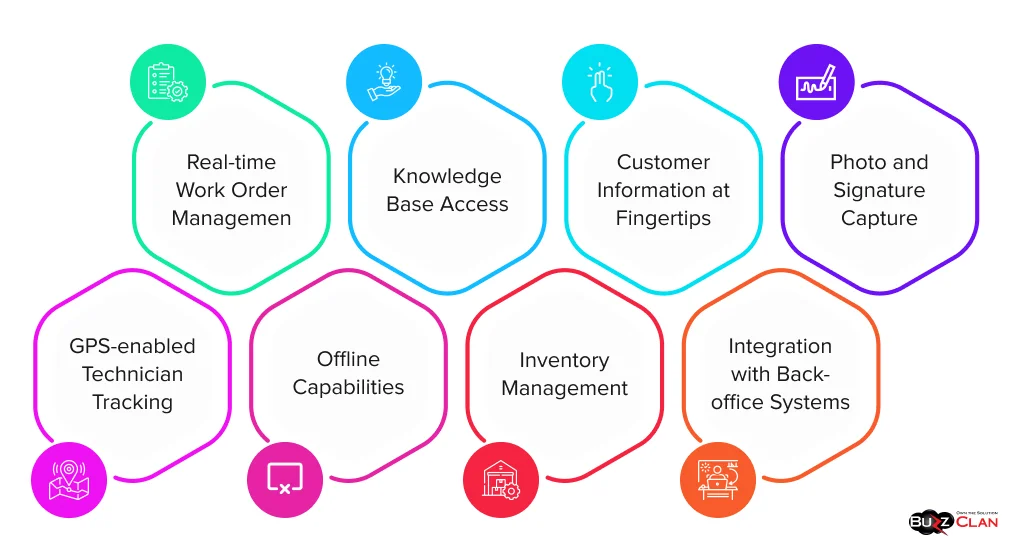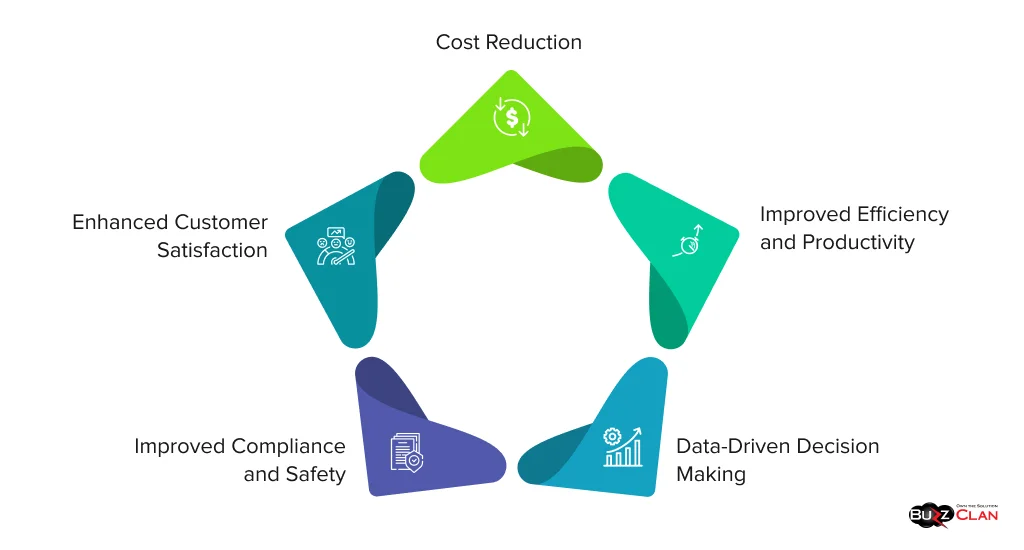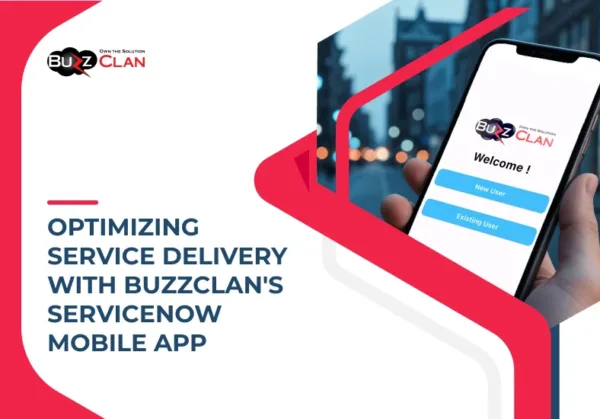ServiceNow Mobile Agent: The Future of Field Service Management
Deepa Desai
Sep 12, 2024
Introduction
Field service management has become increasingly critical for organizations across various industries in today’s fast-paced business environment. The ability to efficiently dispatch technicians, manage work orders, and resolve customer issues in real time can make or break a company’s reputation and bottom line. Enter ServiceNow Mobile Agent, a game-changing solution transforming the field service operations landscape.
The Evolution of Field Service Management
Before diving into the specifics of ServiceNow Mobile Agent, it’s essential to understand the evolution of field service management. Traditionally, field service operations were plagued by inefficiencies:
- Paper-based work orders
- Limited real-time communication
- Lack of visibility into technician locations and job statuses
- Difficulty in accessing up-to-date customer information and service histories
- Challenges in optimizing technician schedules and routes
These pain points often resulted in delayed response times, increased costs, and decreased customer satisfaction. Early digital solutions emerged as technology advanced, but they were often siloed and lacked integration with other critical business systems.
ServiceNow Mobile Agent
ServiceNow Mobile Agent represents a paradigm shift in field service management. By leveraging the power of cloud computing, mobile technology, and artificial intelligence, it offers a comprehensive solution that addresses the challenges of traditional field service operations.
Key Features of ServiceNow Mobile Agent

- Real-time Work Order Management: Technicians can receive, update, and close work orders in real time, eliminating the need for paper-based processes and reducing administrative overhead.
- GPS-enabled Technician Tracking: Dispatchers can view technicians’ real-time locations, enabling more efficient scheduling and routing.
- Knowledge Base Access: Technicians have instant access to a vast repository of knowledge articles, manuals, and troubleshooting guides, empowering them to resolve issues more quickly.
- Offline Capabilities: The app works seamlessly in areas with limited or no connectivity, ensuring technicians can continue to work without interruption.
- Customer Information at Fingertips: Technicians can access complete customer histories, service records, and equipment details, providing context for more personalized and effective service.
- Inventory Management: Real-time visibility into parts inventory allows technicians to check availability and order necessary components on the spot.
- Photo and Signature Capture: Technicians can document their work with photos and collect customer signatures directly within the app.
- Integration with Back-office Systems: Seamless integration with other ServiceNow modules and third-party systems ensures data consistency across the organization.
The Impact of ServiceNow Mobile Agent on Field Service Operations

The implementation of ServiceNow Mobile Agent can have a profound impact on an organization’s field service operations:
Improved Efficiency and Productivity
ServiceNow Mobile Agent significantly boosts efficiency by streamlining workflows and providing technicians with the necessary tools and information. Technicians can complete more daily jobs, reducing backlogs and improving overall productivity.
Enhanced Customer Satisfaction
With access to real-time information and the ability to resolve issues more quickly, technicians can provide a higher level of service. This leads to improved first-time fix rates and increased customer satisfaction.
Cost Reduction
Organizations can significantly reduce operational costs associated with field service management by optimizing routes, reducing paperwork, and improving inventory management.
Data-Driven Decision Making
The rich data collected through the Mobile Agent app provides valuable insights into field service operations. This data can be analyzed to identify trends, optimize processes, and make informed resource allocation and service delivery decisions.
Improved Compliance and Safety
Built-in checklists and guided procedures ensure technicians follow safety protocols and compliance requirements. This reduces the risk of accidents and helps organizations maintain regulatory compliance.
Enhanced Customer Satisfaction
With access to real-time information and the ability to resolve issues more quickly, technicians can provide a higher level of service. This leads to improved first-time fix rates and increased customer satisfaction.
Implementing ServiceNow Mobile Agent: Best Practices
While the benefits of ServiceNow Mobile Agent are clear, successful implementation requires careful planning and execution. Here are some best practices to consider:
| Best Practice | Details |
|---|---|
| Define Clear Objectives | Identify specific goals and KPIs for your field service operations before implementation. |
| Engage Stakeholders | Involve technicians, dispatchers, and management in the implementation process to ensure buy-in and address potential concerns. |
| Customize to Your Needs | While ServiceNow Mobile Agent offers robust out-of-the-box functionality, customize it to align with your business processes and requirements. |
| Integrate with Existing Systems | To maximize the solution's value, ensure seamless integration with your CRM, ERP, and other critical business systems. |
| Provide Comprehensive Training | To ensure smooth adoption, offer thorough training to all users, including technicians, dispatchers, and administrators. |
| Start with a Pilot | Begin with a small pilot group to identify and address any issues before rolling out to the entire organization. |
| Continuously Gather Feedback | Regularly solicit user feedback and make iterative system improvements. |
The Future of Field Service Management with ServiceNow Mobile Agent
As technology continues to evolve, ServiceNow Mobile Agent is well-positioned to incorporate emerging trends and technologies:
Augmented Reality (AR)
Integrating AR capabilities could allow technicians to visualize complex equipment and receive step-by-step guidance overlaid on their field of view.
Artificial Intelligence and Machine Learning
AI-powered predictive maintenance and intelligent scheduling could optimize field service operations, reducing downtime and improving resource allocation.
Internet of Things (IoT) Integration
Deeper integration with IoT devices could enable proactive service by automatically generating work orders based on real-time equipment performance data.
Advanced Analytics and Reporting
More sophisticated analytics tools could provide even deeper insights into field service operations, enabling continuous improvement and optimization.
Conclusion
ServiceNow Mobile Agent represents a significant leap forward in field service management technology. Providing technicians with the tools and information they need to perform their jobs more efficiently enables organizations to deliver superior customer service while reducing costs and improving operational efficiency.
As field service continues to evolve, solutions like ServiceNow Mobile Agent will play an increasingly critical role in helping organizations stay competitive in a rapidly changing business landscape. By embracing this technology and following best practices for implementation, companies can transform their field service operations and set the stage for long-term success.
The future of field service management is mobile, connected, and intelligent – and ServiceNow Mobile Agent is leading the way.
FAQs

Get In Touch
Follow Us

Get In Touch












